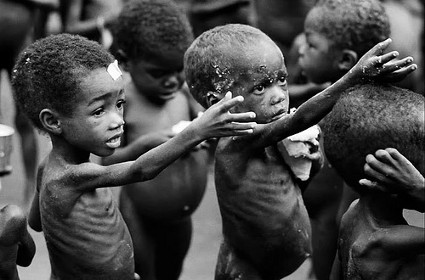
The World Bank’s June 2021 77-page Nigeria Development Update instructs in particular federal economic policy formulators and implementors that “rising prices alone – even without incorporating the direct impact of COVID-19 on welfare – pushed an estimated seven million Nigerians below the poverty line in 2020.” The corollary is focus by the apex bank on attainment of the principal object which mandates it to “ensure monetary and price stability” that alone would have brought about the desirable outcome of successfully keeping seven million Nigerians (who were on or near the border line) from slipping into extreme poverty in 2020.
It should be quickly pointed out that apart from the attribution solely to inflation of the specific numerical size of affected Nigerians, the 2021 NDU report is actually the umpteenth verdict that the underlying heterodox fiscal and monetary preferences by successive federal administrations have been consistently accountable for the non-realisation of the long list of economic development objectives being ceaselessly paraded. The implemented economic programmes by the Buhari administration include (a) Economic Recovery and Growth Plan, (b) rolling three-year Medium Term Expenditure Framework and Fiscal Strategy Paper beginning in 2015 together with the associated annual budgets, (c) Bouncing Back: Nigeria Economic Sustainability Plan 2020 (d) numerous CBN intervention funds, and (e) the conditional cash transfer programme under which FG seeks to lift 100 million Nigerians out of extreme poverty during 2020-30. The administration’s spin doctors claim that over 10 million citizens have been taken out of poverty since Buhari’s second term began. However, convincing assessment of the administration’s economic performance is deducible by resort to the fact’ that a lower GDP growth rate than the population growth rate in a given period swells the rank of people who have been reduced to extreme poverty. NBS data since the 2016-17 recession show that the country’s population growth rate of 2.6 per cent per annum has outpaced the GDP growth rate thereby affirming the rising incidence of extreme poverty under the Buhari government.
Historically, the economy has been characterised by high inflation and widespread poverty. It may be recalled that the poverty incidence was put at 35 per cent during Nigeria’s oil boom decade in 1970-79. But CBN data indicate that in 2012, the poverty incidence topped 70 per cent. By May 2018 under Buhari, Nigeria sank into the poverty capital of the world and has remained so since then. The half-century-long trajectory of rising national poverty did not occur by accident. (Growing extreme poverty is even projected into the 2022-24 MTEF/FSP.) The cause is FG refusal to be guided by the principle of economic rational expectation. Under the principle, economic policy formulators and implementors (who are meant to be committed to attaining national economic advancement) are expected to evaluate various policy options from one period to another and then choose and implement those options that perceptibly improve the welfare of the greatest numbers of the citizenry. But as empirically and statistically established, Nigeria’s experience has been the converse after the demise 50 years ago of the Bretton Woods system of fixed exchange rates in 1971 with successive federal administrations fooling the Nigerian people by creating inflationary volumes of the national currency, the naira, through willful mismanagement for the benefit of ever-diminishing economic beneficiaries and government-foisted financial interlopers.
As regards taming inflation, there exists “monetary and price stability” when FG expenditure is confined to revenue receipts plus (if need be) any deficit spending up to a ceiling of three per cent of GDP as set by the Fiscal Responsibility Act (the stipulation is also contained in the annual Appropriation Act). Strict adherence to the expenditure limit would keep inflation within the safety range of 0-3 per cent, which prevents rapid erosion of the purchasing power of the naira and so keeps those on or near the border line from falling into extreme poverty. Given the safety inflation level, there would evolve a conducive business environment characterised by stable exchange rate and internationally competitive four-seven per cent lending rates (that are therefore positive in real terms) across the board. Recall for the sake of corroboration that the economy witnessed prime lending rates of six-seven per cent and maximum lending rates ranging from six per cent to 11 per cent during 1961-1979. The manufacturing industries established during the period began to underperform with some closing down after prime and maximum lending rates rose to 14-30 per cent from the mid-1980s. Needless to state, high lending rates are co-travellers of high inflation and they jointly beget rising extreme poverty.
With the real sector starved of cheap bank credit associated with the safety inflation regime, CBN heterodoxly and in the guise of playing a development role has become lender of first resort (instead of the traditional last resort) to arbitrarily selected economic operators by offering intervention funds. All economic actors play economic development role.
Support InfoStride News' Credible Journalism: Only credible journalism can guarantee a fair, accountable and transparent society, including democracy and government. It involves a lot of efforts and money. We need your support. Click here to Donate
